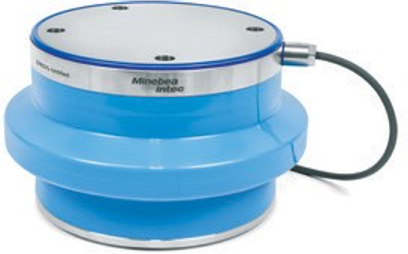In GMP-regulated environments, the precise and fast weighing of ultrafiltration vessels, which are headed to different production areas, requires a mobile weighing solution with a hygienic design.
Customer
Boehringer Ingelheim RCV, Vienna is the branch of the Boehringer Ingelheim Group responsible for pharmaceuticals and clinical research in over 30 countries in Europe and Central Asia and is also the global cancer research centre for the Group.
Project Goal and Implementation
Boehringer Ingelheim relies on UDF vessels, which are put to use under cleanroom conditions – both after ultrafiltration and before the product filling stage. The pharmaceutical company ordered a mobile weighing solution for a 50 l ultrafiltration vessel weighing 320 kg in total. The extended remit required the solution to be resistant to cleaning products, be able to withstand transportation stresses and to include the option of connecting the weighing station to the existing PLC.
Manufacturing systems used in the pharmaceutical industry have to comply with stringent hygiene requirements. Thorough cleaning processes using abrasive cleaning agents are a must and they have to be verifiable, too. What’s more, there are busy routes used to transport materials to different production areas for subsequent manufacturing steps. In light of this, the mobile weighing solution has to be able to withstand frequent transportation and intense cleaning. This is a challenge for the process vessel, load cells, and connected components alike.
2-in-1 weighing solution: The weighing module Contego combines a load cell and mounting kit beneath a protective sleeve made from FDA-compliant silicone
Based on Boehringer Ingelheim’s specific requirements, the Vienna-based system manufacturer Baumgartner & Co. designed a mobile process vessel with integrated weighing technology using the three hygienic weighing modules Contego from Minebea Intec. The weighing modules Contego have a hygienic design with EHEDG certification.
Thanks to its compact design, the solution could be easily integrated into the mobile vessel, while retaining its full functionality and complying with hygiene requirements. In fact, the design consistently avoided details that could pose poor hygiene problems – such as indentations, covers, and open threads - thus enabling effective cleaning without placing excessive demands on time or using too many cleaning products. The hygienic design saves money and prevents Boehringer Ingelheim products from becoming contaminated.
At the same time, the fundamental “weighing on wheels” concept ensures that the manufacturing system is quickly ready for use again and that efficiency levels are boosted.
The main highlight of the mobile weighing solution is its hygienic design








